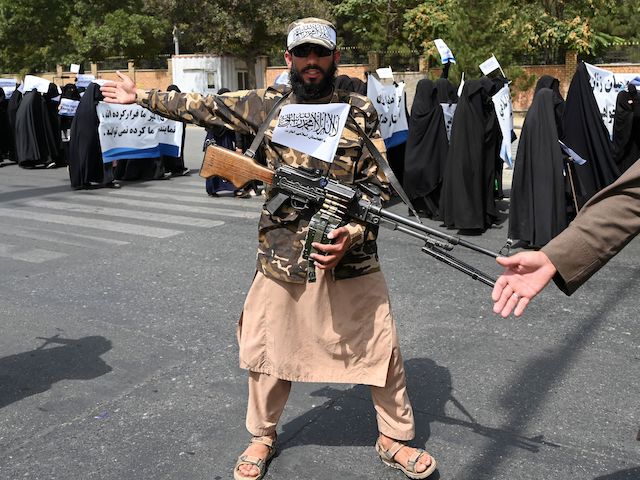The World Bank is “exploring ways” to bypass U.S. sanctions on the Taliban so that it may redirect roughly $500 million from an Afghanistan Reconstruction Trust Fund (ARTF) to United Nations (U.N.) aid agencies, Reuters reported on Monday citing “people familiar with the plans.”
The World Bank is a financial lending institution that provides grants and loans to the governments of poorer nations. Its board members allegedly met “informally” on November 30 to discuss the redirection of ARTF funds to Afghanistan. Reuters described the proposal as having been initially “hammered out in recent weeks with U.S. and U.N. officials.”
The World Bank is still working out “how to get the funds into Afghanistan without exposing the financial institutions involved to U.S. sanctions,” sources told Reuters.
“Any decision to redirect ARTF money requires the approval of all its donors, of which the United States has been the largest,” Reuters noted on Monday.
“Washington is working with the World Bank and other donors on how to use the [ARTF] funds, including potentially paying those who work in ‘critical positions such as healthcare workers and teachers,'” a U.S. State Department spokesperson confirmed to Reuters this week.
A World Bank spokesperson likewise confirmed to Reuters on Monday that “staff and executive board members are exploring redirecting ARTF funds to U.N. agencies ‘to support humanitarian efforts.'” The spokesperson provided no further details, while the U.N. declined to comment on the matter entirely.
The World Bank administers the ARTF as a “multi-donor trust fund.” The financial institution established the ARTF in 2002 “to provide a coordinated financing mechanism for the Government of Afghanistan’s budget and priority national investment programs,” according to ARTF’s website. A notice on the ARTF website at press time reads, “The World Bank has paused disbursements in our operations in Afghanistan and does not have the authorizing environment to engage in financing at this time.”
The ARTF financed 30 percent of Afghanistan’s civilian budget as its largest single source of funding from 2002 to August 2021.
“Afghanistan’s civilian budget … was more than 70 percent funded by foreign aid,” Reuters recalled on Monday.
The Taliban deposed Afghanistan’s U.S.-backed government on August 15. The action spurred the World Bank to suspend its historic disbursements to Afghanistan. The U.S. government responded to the development by halting its supply of U.S. dollars to Afghanistan and blocking the Taliban’s access to practically all of the Afghan central bank’s $9.5 billion in reserves at the time. The International Monetary Fund (IMF) suspended its plans to distribute roughly $460 million in emergency reserves to Afghanistan on August 18.
Though the U.S. government has stopped short of designating the Taliban an official “terror organization,” it has imposed sanctions on the group — together with the U.N. — since 2001, when the U.S. invaded Afghanistan to oust the Taliban from the country’s seat of government in Kabul. The U.S. considers the Pakistani Taliban, but not the Afghan Taliban, a foreign terrorist organization.
“Two former U.S. officials familiar with internal administration deliberations said that some U.S. officials contend that U.S. and U.N. sanctions on Taliban leaders bar financial aid to anyone affiliated with their government,” Reuters noted on November 29.
“The most powerful leverage that the United States and the rest of the world hold against the Taliban are sanctions, which have been employed aggressively to starve the group of financing and curtail the ability of its leaders to travel,” the New York Times observed on August 21.
“Afghanistan now emerges into the international community into a sea of sanctions that are tied to the Taliban dating back to 9/11,” Juan C. Zarate, who served as the first-ever assistant secretary of the U.S. Treasury for terrorist financing and financial crimes, told the Times.
“Aid groups and nongovernmental organizations will have difficulty operating in Afghanistan while the sanctions are in place,” the newspaper predicted.
